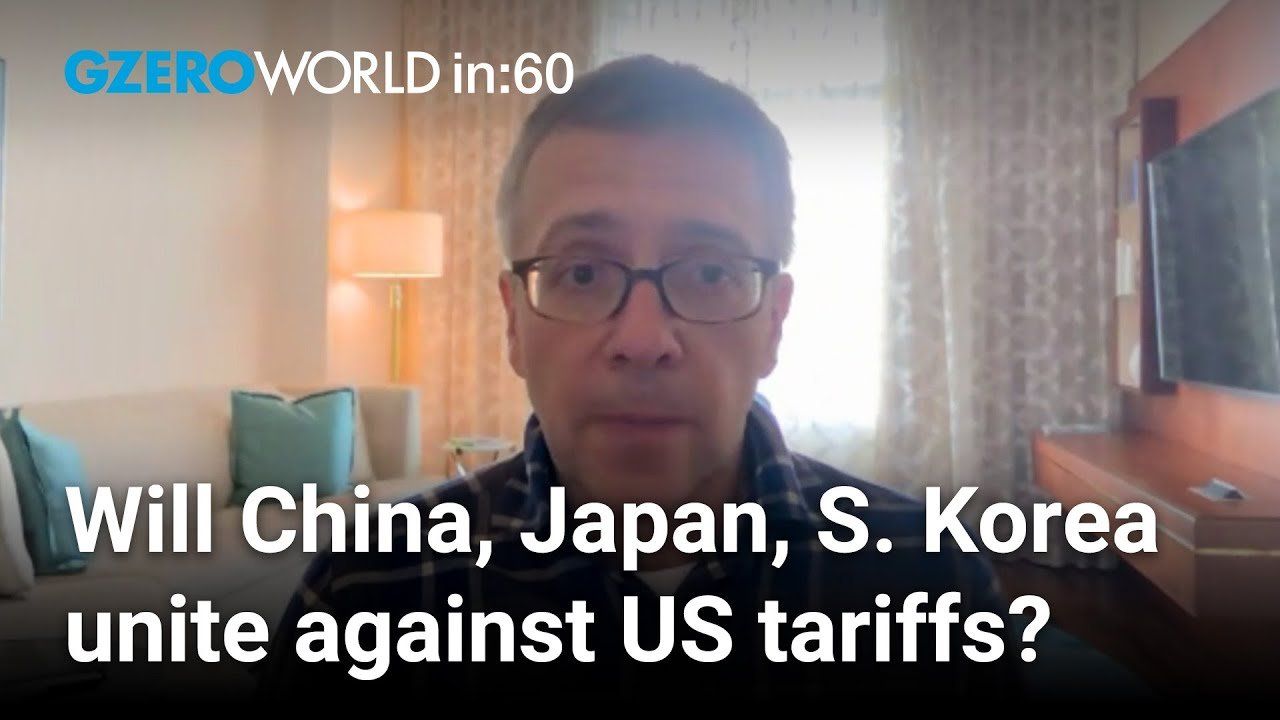
Ian Bremmer shares his insights on global politics this week on World In :60.
If China, Japan, and South Korea formed a united front, what kind of leverage would they have in negotiating against US tariffs?
Oh, if that were to happen, they'd have incredible leverage because China's the second-largest economy in the world, Japan's the third. This would be a really, really big deal. Except for the fact that it's not going to happen. Their trade ministers did just meet, and they've had some interesting coordinated statements. They do a lot of trade together, and they want to continue that. But the fact that the security of South Korea and Japan is overwhelmingly oriented towards the US, and they would not want to undermine that, means that they will certainly not see China as a confederate to coordinate with against the United States, not least on trade. The American response would be belligerent. So no, that's not going to happen.
Will Syria's newly formed transitional government be enough for Arab and Western leaders to lift sanctions and restore diplomatic ties?
I think they are heading in that trajectory. The question is, will it be enough to keep Syria stable and away from descending into civil war? And there, there's a huge question because this is a completely untested government, completely inexperienced, no governance background, very little background in terms of military stability, especially with all of the new members, militias that have been integrated from across a very diverse country. And a lot of internal opponents that are sitting back and waiting to fight. So I'm more worried about that than I am about international support. I think largely the international support they need is going to be there.
Why does Trump want to take Greenland?
I have no idea. Maybe somebody showed him a globe from the top and he saw how big it was, and he's like, "Oh, that'd be kind of cool to have." It's not like there's anything he needs that he can't get directly from negotiating with Denmark. Plenty of willingness to allow the US to have expanded bases, troops on the ground. Plenty of willingness from other countries in the region to do more in terms of patrolling, build more icebreakers to deal with. The Finnish President, Alex Stubb, who just went to see him golfing with him, spent seven hours over the weekend moving in that direction. But you saw from Vice President Vance, he's like, "Well, the President wants it. So of course I got to respond to that." Yeah, but they don't have any reason. And I do think that it is sufficiently blowing up in their faces on the ground in Denmark and in Greenland, that the Danes understand not to make a big deal out of this and it will eventually blow over. It is annoying to them symbolically, but it doesn't matter all that much. In that regard, we can spend a little bit less time on it. Okay, that's it for me. I'll talk to you all real soon.